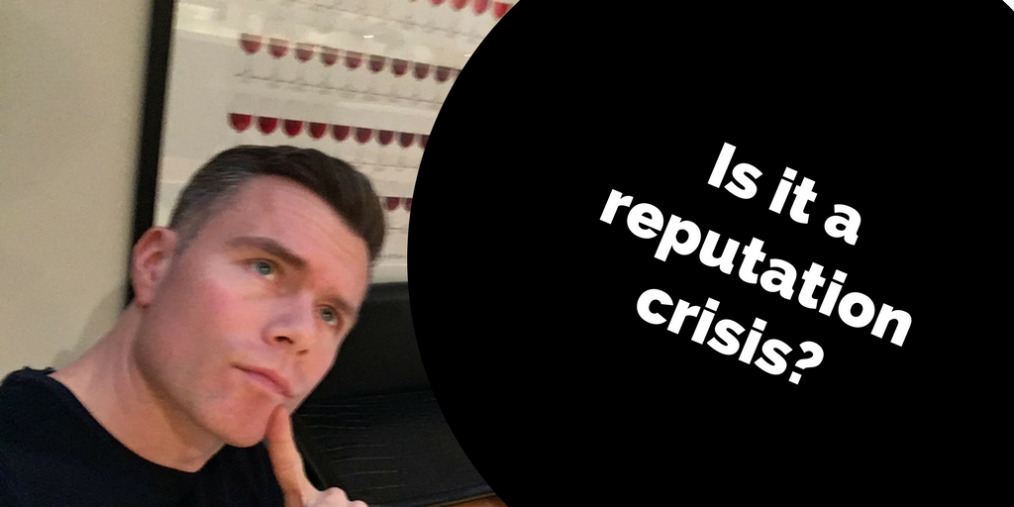
Is it a reputation crisis?
A friend recently sent me an email which read “United, Pepsi, the Oscars…. so many reputation crises, so many things to blog about!”
And he’s right, for people concerned with the subject of reputation, there’s a lot of subject matter around. However, I’ve been hesitant to write about these recent events as ‘reputation crises’ as the events themselves, whilst influencing reputation, are the result of different underlying problems. As such, they require different responses to the typical crisis communications usually associated with a reputation hit.
United Airlines has a culture issue. United forgot that in an industry as competitive as Airline travel, the customer comes first. United allowed procedure to trump customer. To see a paying customer being forcibly dragged from a seat he had pre-booked, was shocking. The United Airlines staff involved in the incident believed they were doing the right thing; they were following procedure. The damage was compounded when the CEO came out in support of the staff and critisising the customer. The situation could (and should) have been dealt with differently. What was missing at United was a set of embedded values that might have guided the behavior of staff, resulting in a more human approach to dealing with the situation. So, yes, this incident resulted in damage to United’s reputation, but at the root of the issue is a corrosive corporate culture. United forgot that it doesn’t exist without customers and customers are human beings who must be treated as such. What United must fix is its organisational culture. To focus on the incident as purely a reputation crisis would be to miss the point.
Pepsi is a classic case of tactics before strategy. Strategy is being clear what your company and/or product stands for – its brand positioning and proposition – and how this is lived and expressed through internal culture, behaviour and marketing activities. If Pepsi had a credible position supported by a clear strategy to make a difference to race and social issues in the USA, we might have forgiven its clumsy advertisement. But it doesn’t, so the ad was purely tactical; Pepsi jumping on a band wagon already full of other companies desperate to signal their virtues. It was crass and many people (when you read the backlash) found it offensive. So the lesson here is be clear on strategy – what does the brand stand for, how is it credible, relevant and differentiated (etc.) … only then should you look at the tactics that support the strategy. To quote Sun Tzu – Strategy without tactics is the slowest route to victory. Tactics without strategy is the noise before defeat.
The Oscars mix up was just that, a silly mix up. It was an awkward, cringe-making, OMG moment, which will go down as a piece of TV gold, but a reputation crisis? No.
PwC, the company responsible for the Oscar’s envelopes has been embarrassed, but did the mix up result in PwC customers taking their business elsewhere? Of course not. The net result for PwC is probably even a good one – an increase in brand awareness.
I guess the point I’m trying to make here is that it’s important to move away from the easy formulation of issues as “reputation” and then rushing to respond. The challenge in this “fast-moving information age” is to take an in-depth, holistic perspective on what triggers or feeds a particular event.
And, dear reader, you’ll not be surprised to hear that this is exactly our approach here at Tovera. Our Brand and Reputation model ensures we get the widest view. It helps in forming the insight in to everything that is influencing an individual’s views and expectations held towards an organisation.
